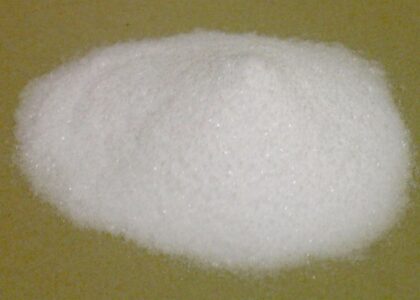Anticipated to reach a valuation of US$ 9.0 billion in 2024, the molded fiber pulp packaging market is displaying consistent growth, having been valued at US$ 8.6 billion in 2023. Projections indicate a robust Compound Annual Growth Rate (CAGR) of 5.4% from 2024 to 2034, underscoring the market’s resilience and expansion potential. With an expected surge in demand, the molded fiber pulp packaging sector is forecasted to attain a noteworthy US$ 15.1 billion by 2034. This trajectory signifies the escalating preference for sustainable and eco-friendly packaging solutions, positioning molded fiber pulp as a key player in the evolving global packaging landscape.
The growing emphasis on sustainability is poised to elevate market demand throughout the forecast period, with industrial manufacturers aligning their practices with eco-friendly trends. Beyond consumer interest, there is a notable industry-wide shift towards eco-friendly packaging solutions. The market’s expansion is further propelled by tightening regulations surrounding non-biodegradable materials, prompting increased adoption of sustainable alternatives in the molded fiber pulp packaging sector.
The Asia Pacific region presents promising growth opportunities in the molded fiber pulp packaging market, driven by the rapid industrialization fostering substantial expansion in industries utilizing this packaging solution. Government initiatives emphasizing sustainability further accelerate the adoption of eco-friendly materials such as molded fiber pulp in the packaging sector, solidifying the region’s position as a key player in the global shift towards greener and more sustainable packaging practices.
Request Sample Report: https://www.futuremarketinsights.com/reports/sample/rep-gb-2900
Market Drivers:
- Sustainability and Environmental Concerns:
- The increasing emphasis on sustainable and eco-friendly packaging solutions has been a significant driver for molded fiber pulp packaging. Consumers and businesses are seeking alternatives to traditional packaging materials that are biodegradable and renewable.
- Regulatory Support:
- Favorable regulations and policies promoting sustainable packaging practices have encouraged the adoption of molded fiber pulp packaging. Governments and regulatory bodies in various regions may provide incentives or impose restrictions that drive the use of environmentally friendly packaging materials.
- Consumer Awareness:
- Growing awareness among consumers about the environmental impact of packaging materials has led to a demand for sustainable options. Molded fiber pulp packaging, being compostable and recyclable, aligns with consumer preferences for eco-friendly products.
- Cost Competitiveness:
- The cost competitiveness of molded fiber pulp packaging, in comparison to some other eco-friendly alternatives, can be a driver for its adoption. As technology advances and production processes become more efficient, the cost gap between molded fiber pulp and traditional packaging materials may further narrow.
- Versatility and Customization:
- Molded fiber pulp packaging is versatile and can be customized to fit various product shapes and sizes. This adaptability is an attractive feature for manufacturers and retailers looking for packaging solutions that can accommodate diverse product lines.
Market Restraints:
- Limited Barrier Properties:
- While molded fiber pulp is suitable for many applications, it may not provide the same level of barrier properties as some other packaging materials. This limitation can restrict its use in certain industries where enhanced protection against moisture, chemicals, or other external factors is essential.
- Production Costs and Technology Challenges:
- The initial investment in machinery and production processes for molded fiber pulp packaging can be a barrier for some businesses. Additionally, addressing challenges related to scaling production while maintaining cost-effectiveness can be a restraint.
- Competition from Alternative Materials:
- Molded fiber pulp faces competition from alternative sustainable materials such as bioplastics and other bio-based packaging solutions. The choice between these materials depends on specific application requirements, cost considerations, and market trends.
- Perception of Fragility:
- Some consumers and businesses may perceive molded fiber pulp packaging as less durable or protective compared to conventional materials like plastic. This perception could limit its adoption in certain product categories.
Key Players
- UFP Technologies, Inc.
- FiberCel Packaging LLC
- Huhtamaki Oyj
- Pactiv LLC
- Henry Molded Products, Inc
- EnviroPAK Corporation
- Spectrum Lithograph Inc.
- ESCO Technologies Inc.
- ProtoPak Engineering Corporation
- Brodrene Hartmann A/S
- OrCon Industries Corporation
- Keiding, Inc.
- Pacific Pulp Molding, LLC
- Guangxi Qiaowang Pulp Packing Products Co, Ltd.
- Celluloses De La Loire
- Dynamic Fibre Moulding (PTY) Ltd.
- Primapack SAE
- Green packing Environmental Protection Technology Co., Ltd.
- Dongguan City Luheng Papers Company Ltd.
- Guangzhou NANYA Pulp Molding Equipment Co., Ltd.
Demand for Primary Packaging Affecting Growth in Molded Fiber Pulp Packaging Market
The demand for primary packaging is playing a crucial role in influencing the growth of the molded fiber pulp packaging market. As businesses and consumers alike prioritize sustainable and eco-friendly packaging solutions, molded fiber pulp has gained significant traction. This material is derived from recycled paper and is known for its biodegradability and compostability.
The emphasis on environmentally friendly packaging has led to a surge in the adoption of molded fiber pulp packaging across various industries. Primary packaging, which directly encases and protects the product, is a key focal point for companies seeking sustainable alternatives. Molded fiber pulp offers a viable solution as it not only provides adequate protection to the products but also aligns with the growing environmental consciousness among consumers.
The molded fiber pulp packaging market is witnessing increased demand as businesses recognize the importance of reducing their environmental footprint. The packaging industry is responding to consumer preferences for sustainable options, and molded fiber pulp aligns well with these expectations. Its biodegradable nature makes it an attractive choice for companies looking to enhance their sustainability credentials.
Key Takeaways
- In 2022, the United States ruled the molded fiber pulp packaging market, with a share of 16.9%.
- The molded fiber pulp packaging market increased at a 3.1% CAGR between 2016 and 2022, citing FMI’s study.
- The molded fiber pulp packaging market was expanding, with a value of US$ 8.14 billion in 2022.
- The expansion in China is anticipated to expand at an adequate CAGR of 7.2% by 2033.
- In 2022, Japan was expanding significantly in the molded fiber pulp packaging market, with a share of 4.9%
- By 2033, the molded fiber pulp packaging sector is likely to increase in India with a size of US$ 1085.9 million.
- The expansion in the United Kingdom is anticipated to expand at an adequate CAGR of 4.5% by 2033.
- Based on packaging type, the 4 cups drink carriers led the market share of 45.7% in 2022.
- Based on molded pulp type, the transfer molded pulp segment led the market share in 2022 and continues to dominate the sector during the forecast period.
Key Strategies in the Industry
As both international and local businesses operate in the molded pulp packaging sector, the market is quite competitive. Businesses that are active in the market offer a broad selection of goods that come in a wide range of forms, dimensions, and hues. Additionally, they provide products with customized packaging to meet the needs of individual customers.
A new fiber packaging line for the production of food service packaging and egg packaging was officially opened in 2019 by Huhtamaki Oyj. Additionally, the business is spending money on research and development to improve and introduce new product lines for commercial growth.
One of the most well-known manufacturers of disposable dinnerware in America, Chinet, produces molded fiber pulp tableware that is microwave safe.
Buy Now/Purchase: https://www.futuremarketinsights.com/checkout/2900
Key Segmentations:
By Product Type:
- Trays
- Drink Carriers
- 2 Cups
- 4 Cups
- 6 Cups
- More than 8 cups
- Boxes
- End Caps
- Plates
- sBowls
- Cups
- Clamshell Containers
By Molded Pulp Type:
- Thick wall
- Transfer Molded
- Thermoformed Fiber
- Processed Pulp
By Application:
- Primary Packaging
- Secondary Packaging
- Edge Protectors
By End Use:
- Consumer Durables
- Mobile Phone
- Television
- Laptops
- Tubelight & Bulbs
- Other
- Food & Beverage
- Egg Packaging
- 4 Eggs
- 6 Eggs
- 12 Eggs
- 24 Eggs
- More than 30 Eggs
- Wine Packaging
- 375 ml
- 750 ml
- 1.5 liters
- More than 3 liters
- Fruit Packaging
- Others
- Egg Packaging
- Cosmetics
- Food Services
- Healthcare
- Automotive
- Logistics
- Others
About Future Market Insights (FMI)
Future Market Insights, Inc. (ESOMAR certified, recipient of the Stevie Award, and a member of the Greater New York Chamber of Commerce) offers profound insights into the driving factors that are boosting demand in the market. FMI stands as the leading global provider of market intelligence, advisory services, consulting, and events for the Packaging, Food and Beverage, Consumer Technology, Healthcare, Industrial, and Chemicals markets. With a vast team of over 5000 analysts worldwide, FMI provides global, regional, and local expertise on diverse domains and industry trends across more than 110 countries.
Contact Us:
Future Market Insights Inc.
Christiana Corporate, 200 Continental Drive,
Suite 401, Newark, Delaware – 19713, USA
T: +1-845-579-5705
For Sales Enquiries: sales@futuremarketinsights.com
Website: https://www.futuremarketinsights.com
LinkedIn| Twitter| Blogs | YouTube




